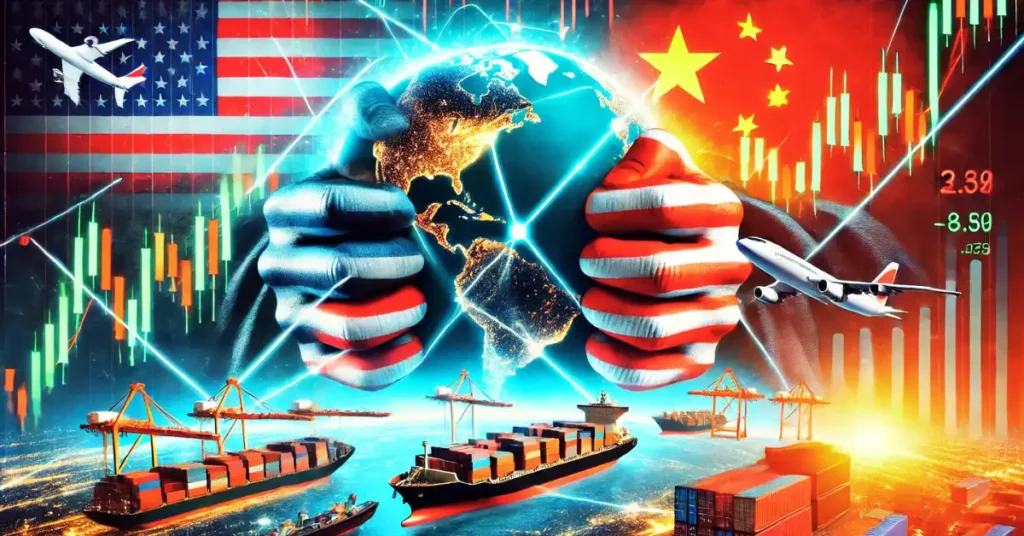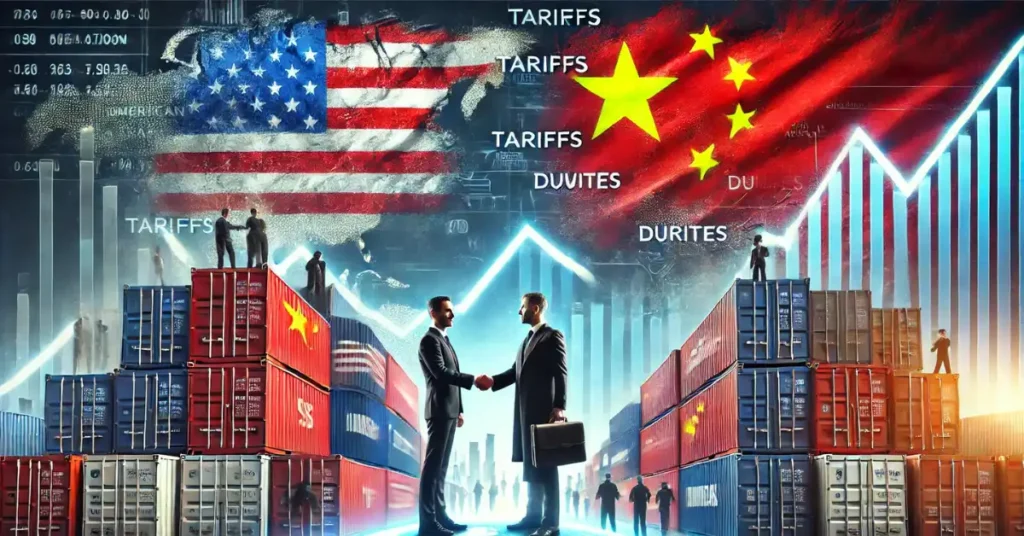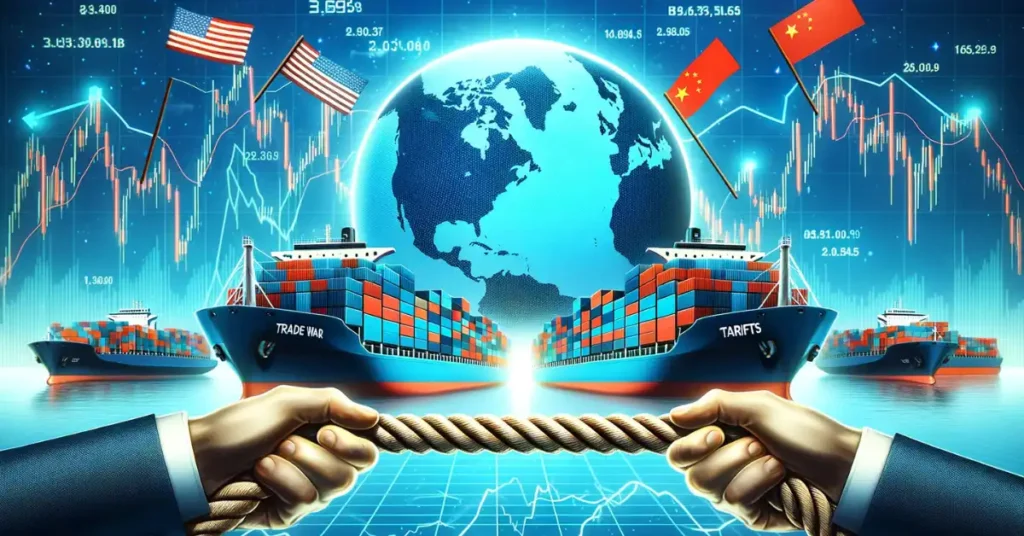
The Trump administration is making waves again with its latest trade policies, implementing aggressive tariffs on key imports. These new duties mark a significant shift in U.S. trade strategy, disrupting decades of free trade agreements. With a push for reciprocal tariffs and hefty levies on foreign-made vehicles, the economic impact could be far-reaching.
In this article, we will break down the latest updates on Trump’s tariffs, their effects on different trade partners, and what to expect moving forward.
The Trump administration’s aggressive tariff strategy is reshaping the global trade landscape. With new duties set to take effect immediately, U.S. trade policy is experiencing one of its most dramatic shifts in decades.
In what he calls a move toward “fair trade,” President Trump has announced a series of tariffs, including a 25% duty on all foreign-made vehicles and additional reciprocal tariffs targeting all trade partners. This decision is expected to have widespread implications, affecting industries ranging from automotive to agriculture.
Businesses, consumers, and international leaders are closely watching as Trump takes this hardline approach. With so much at stake, the world is bracing for potential retaliatory measures from major U.S. trading partners.
Table of Contents
Trump’s Reciprocal Tariffs: What Are They?
Trump’s plan for reciprocal tariffs means that the U.S. will impose duties on imports equal to those imposed on American goods by other nations. If a country charges the U.S. a 20% tariff on exports, the U.S. will reciprocate with the same rate on that country’s imports.
The idea behind this policy is to create what Trump calls a “level playing field.” While some see this as a strategic move to protect American industries, others fear it could escalate tensions into an all-out trade war.
25% Tariffs on Foreign-Made Vehicles
One of the most controversial aspects of Trump’s latest tariff push is the imposition of a 25% duty on all foreign-made vehicles. This move is aimed at boosting domestic car production and reducing America’s trade deficit.
However, industry experts warn that these tariffs could backfire. Many car manufacturers operate global supply chains, meaning that even U.S.-based companies rely on foreign parts. If car prices rise due to increased costs, consumer demand could shrink, leading to job losses in the auto sector.
Steel and Aluminum Tariffs
The 25% tariffs on steel and aluminum imports officially took effect on March 12. These tariffs apply to all countries, reflecting Trump’s broader protectionist stance.
While the move is intended to protect American steel and aluminum industries, it has drawn backlash from U.S. businesses that rely on imported metals. Many fear that higher material costs will lead to price increases for everything from cars to construction projects.
European Union’s Response
The European Union has been quick to retaliate against Trump’s tariffs. In response to the U.S. steel and aluminum duties, the EU imposed counter-tariffs on $28 billion worth of American goods.
Initially, some of these counter-tariffs were set to be implemented immediately, but the EU has delayed certain measures until mid-April. Among the delayed tariffs is a 50% duty on American whiskey, a move that had prompted Trump to threaten a 200% tariff on European spirits in return.
Canada and Mexico: USMCA and Tariff Exemptions

Trump’s across-the-board 25% tariffs on Canada and Mexico took effect on March 4. However, just two days later, he announced that the U.S. would temporarily pause tariffs on goods that comply with the United States-Mexico-Canada Agreement (USMCA) until April 2.
Canada, in turn, has responded with its own retaliatory tariffs, targeting approximately $20 billion in American goods. This tit-for-tat trade battle has put a strain on U.S. relations with its closest neighbors.
China’s Countermeasures
China has been one of the hardest-hit countries in Trump’s trade war. The U.S. has now imposed a blanket 20% tariff on top of existing 10% duties, further escalating tensions.
Beijing has responded by slapping additional tariffs of up to 15% on American farm goods, including chicken and pork. This move is particularly concerning for U.S. farmers, who are already struggling due to previous trade restrictions.
Venezuela: Secondary Tariffs on Oil and Gas
In a more politically charged move, Trump has announced a 25% “secondary tariff” on any nation that trades oil or gas with Venezuela. This policy, set to take effect on April 2, is designed to pressure other countries into cutting economic ties with the Venezuelan government.
While the Trump administration sees this as a way to weaken Venezuela’s leadership, critics argue that it could have unintended consequences, including rising global energy prices.
Market Reactions to Tariffs

The stock market has been volatile in response to Trump’s tariff announcements. Investors are closely watching how these trade policies will impact major industries, particularly the automotive, manufacturing, and agricultural sectors.
- Stock Market Fluctuations:
The Dow Jones Industrial Average and S&P 500 have experienced sharp swings as investors react to the uncertainty surrounding the tariffs. Some analysts believe that prolonged trade tensions could lead to a market downturn. - Industries Most Affected:
- Automotive Industry: Car manufacturers face higher costs due to tariffs on steel, aluminum, and foreign-made vehicles. Companies like Ford and General Motors have warned that production costs could rise, potentially leading to higher prices for consumers.
- Agriculture: Farmers are already feeling the impact of Chinese retaliatory tariffs on U.S. farm products. With additional duties on pork and chicken, American agricultural exports could take a further hit.
- Retail Sector: Many consumer goods are imported, and increased tariffs could lead to higher prices on everyday items, from electronics to clothing.
- Expert Analysis:
Some economists argue that while Trump’s tariffs may create short-term disruptions, they could ultimately encourage domestic production. Others warn that escalating trade tensions could lead to long-term economic instability.
Political Reactions in the U.S.
Trump’s tariff policies have sparked a fierce debate in Washington, with both support and opposition coming from unexpected quarters.
- Republican Response:
While Trump’s “America First” trade stance aligns with his base, many Republican lawmakers are wary of the tariffs’ potential economic impact. Senate Majority Leader Mitch McConnell and other GOP leaders have urged Trump to reconsider, warning of potential job losses. - Democratic Response:
Some Democrats have cautiously supported the tariffs, seeing them as a way to protect American workers. However, others argue that the trade war could backfire, leading to economic hardship for middle-class families. - Business Lobbying:
Major U.S. corporations and trade associations have launched lobbying efforts to push back against the tariffs. The U.S. Chamber of Commerce has warned that continued escalation could cost the American economy billions of dollars.
Global Trade Alliances Shifting
As the U.S. takes a more protectionist stance, other countries are forging new trade alliances.
- China Strengthens Ties with Europe:
In response to Trump’s tariffs, China is increasing trade partnerships with European nations, bypassing U.S. markets. - Canada and Mexico Seek New Partners:
With U.S. tariffs disrupting North American trade, Canada and Mexico are exploring stronger economic ties with the European Union and Asian markets. - Potential for New Trade Agreements:
Some experts believe that Trump’s aggressive trade policies could ultimately lead to renegotiated trade deals that are more favorable to the U.S. However, there is also the risk of long-term diplomatic strain.
What This Means for U.S. Consumers

One of the biggest concerns surrounding the tariffs is how they will affect everyday Americans.
- Price Increases on Imported Goods:
As import costs rise, consumers will likely see higher prices on cars, electronics, clothing, and even food products. - Job Market Impact:
While some industries may see job growth due to increased domestic production, others—particularly those reliant on global supply chains—could experience layoffs. - How Businesses Are Adapting:
Some U.S. companies are looking for ways to offset tariff costs, such as shifting supply chains or passing expenses onto consumers. Others are pressuring the government to negotiate exemptions.
Future Outlook on Trump’s Trade Policies
The long-term effects of Trump’s tariffs remain uncertain.
- Will These Tariffs Remain in Place?
If Trump’s policies achieve their intended effect, some tariffs could eventually be lifted. However, if trade tensions escalate, they may become a permanent fixture of U.S. trade policy. - Potential Next Moves from the Administration:
The White House has hinted at additional tariffs on key industries, including technology and pharmaceuticals. Trump has also suggested further trade restrictions on specific countries. - Predictions from Economists and Trade Experts:
- Some believe that these tariffs will push the U.S. toward self-sufficiency, reducing reliance on foreign goods.
- Others warn that prolonged trade wars could lead to a global recession, particularly if major economies like China and the EU retaliate further.
Conclusion
Trump’s latest tariffs mark a turning point in U.S. trade policy. While the administration argues that these measures will lead to fairer trade and economic growth, critics warn of higher prices, market instability, and potential job losses.
As the world watches how these policies unfold, one thing is clear: global trade is shifting in unprecedented ways, and the impact will be felt for years to come.
FAQs
1. What is a reciprocal tariff?
A reciprocal tariff is a duty imposed by one country that matches the tariff rate another country places on its exports. Trump’s plan aims to ensure equal treatment in trade.
2. How will these tariffs affect car prices in the U.S.?
With a 25% tariff on foreign-made vehicles, car prices are expected to rise, affecting both new and used car markets.
3. Will these tariffs lead to a global trade war?
There is a strong possibility of further trade conflicts as other countries retaliate. However, some experts believe negotiations may eventually ease tensions.
4. What does this mean for American farmers?
Farmers are already facing challenges from Chinese retaliatory tariffs on agricultural goods. Further restrictions could lead to financial losses and reduced exports.
5. How long will these tariffs be in place?
The duration of these tariffs depends on trade negotiations and economic conditions. Some could be temporary, while others may become long-term policies.





